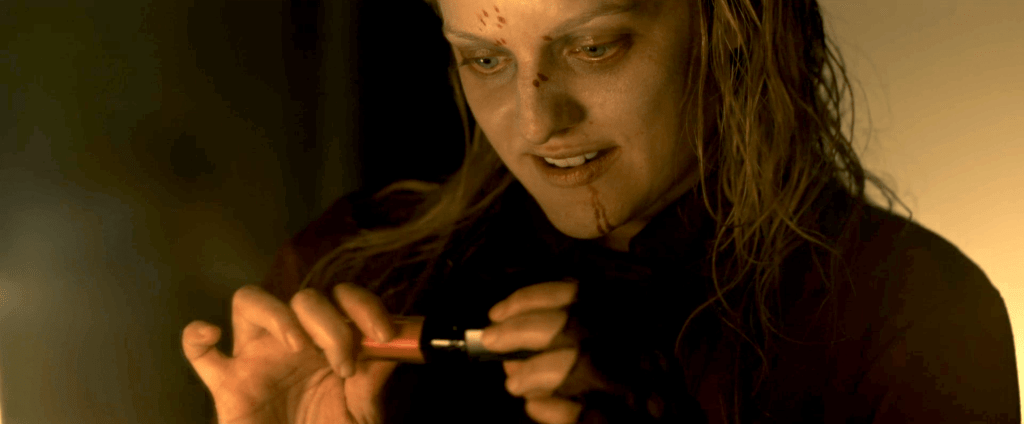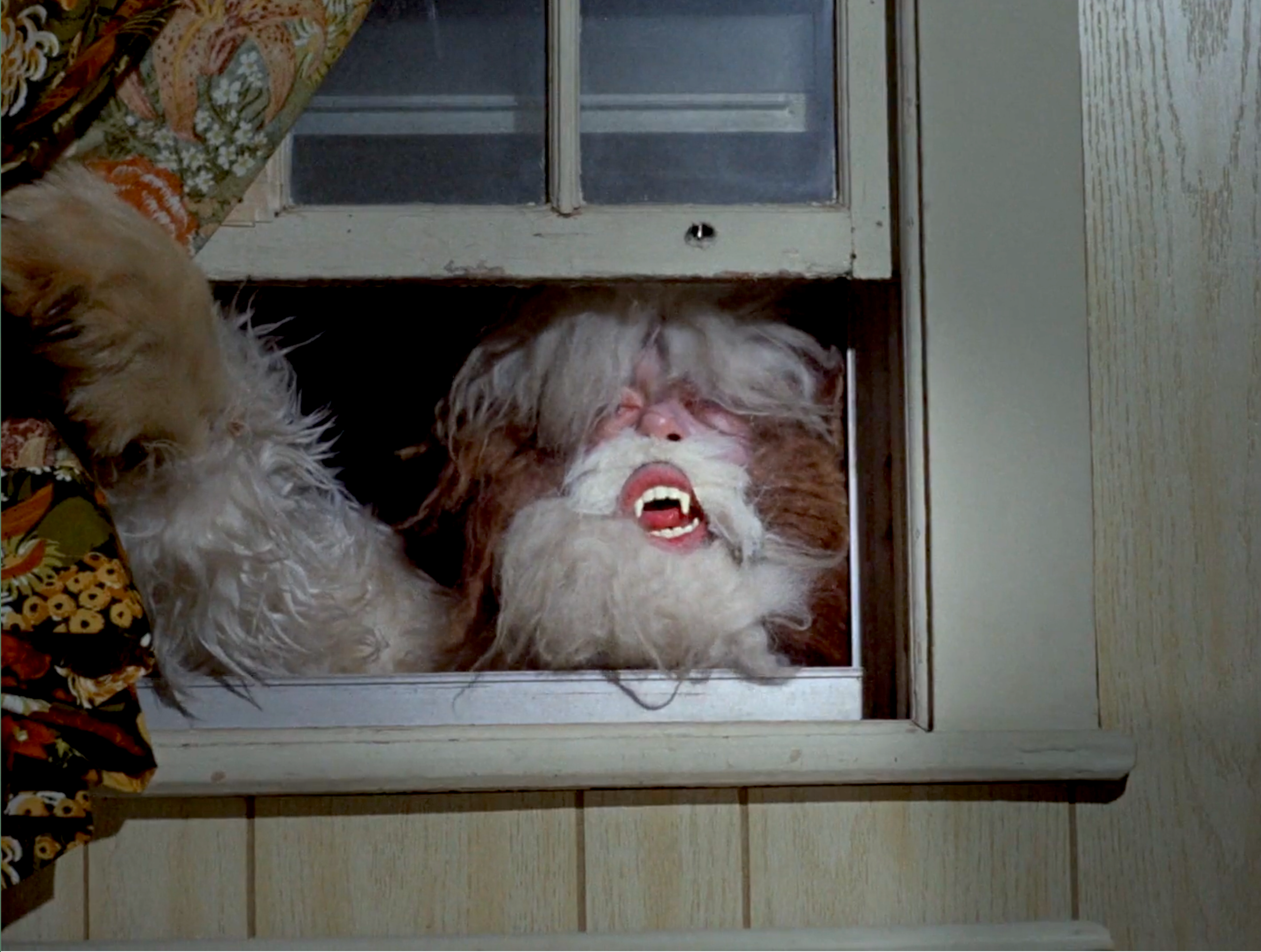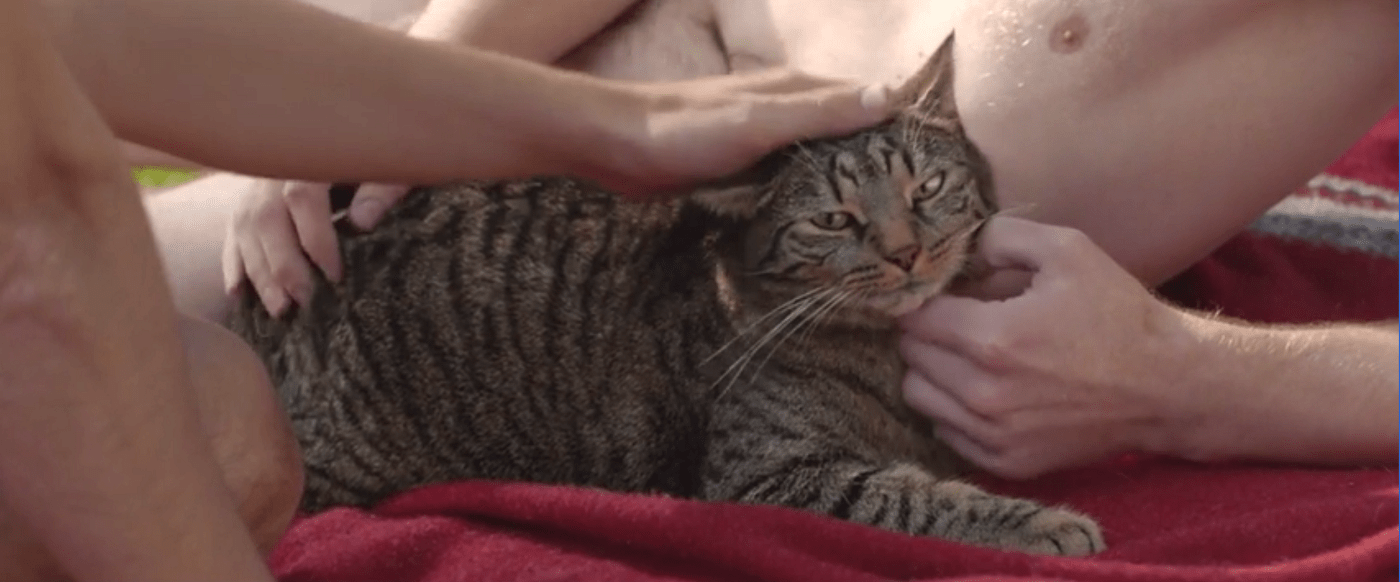
Jordan Peele made his film Us in 2019. It is a complex film dealing with the concept of “the other.” Donald Trump was president at the time and was busy creating as many fractures in the American populace as he could. The chaos and cruelty that ensued were a means toward a cynical grab for power based on all the confusion. Us steps directly into the fray and wrestles with these fractures head-on.
Peele introduces us to a middle-class suburban family and then attacks them with doppelgängers. After the lead family is accosted we move to another house where we watch a white family face the same onslaught by their own set of doppelgängers. Elizabeth Moss plays Dahlia the mother. After her doppelgänger kills her, the doppelgänger, Dahlia, goes upstairs to the original Dahlia’s bedroom.
Up until this point the doppelgängers, referred to in the film as “the tethered,” have all been brute animalistic murderers with the exception of Red. The audience still doesn’t know what to think of these people or what is going on inside their heads.
Dahlia’s doppelgänger sits down at Dahlia’s beauty table and picks up a small jar of lipgloss. She looks at it as if it were a curious treasure, something she knew existed but had never seen in person. As she applies the exotic substance to her lips she makes a series of grotesque faces that lead the audience through a sequence of emotions. It is a chilling and deeply disturbing scene.
First, there is a face of curious admiration as she looks closely at the applicator. It feels like she is still figuring out what it is.

Then she begins applying the red gloss. She clearly has never done this before and watches herself closely in the mirror. Her eyes look both attentive and a little glazed. This is not a sentient person in the way that we understand sentience. She seems a little dazed, a little zombie-like. She has only just finished murdering her twin and is unfazed. The red gloss is a bizarre addition to her blood-spattered face. Her eyes are dark and sunken and her hair is matted and greasy but she is savoring this small moment of transformation. We, the audience, see her as the intruder, the frightening and violent “other” but she sees us as “the other.” We play the “haves” to her “have-nots.”

Then she grins. She evaluates her work and is pleased with how she looks. It’s a flicker of genuine enjoyment but soon the grin begins to widen into a smile.

As the smile spreads over her face the satisfaction turns into something darker. She is playing at being her dead twin. This is her chance to enjoy the life she has been denied. She sees in the mirror the person she could have been or perhaps will be, but with the sunken eyes and the light coming from beneath her she looks far from glamorous.

The smile slowly expands into a grimace. She opens her mouth and her smile of happiness changes to a fake rictus of pleasure found only in saccharine advertisements and fashion magazines. Now she is no longer playing at being glamorous now she is mocking it. She revels in the ridiculous superficiality of beauty half loving it and half hating it.

Lastly, she draws her chin down so that there is no mistaking her cruel and vengeful motives. The people who lived above her in the sunlight are ridiculous to her. She can wear their lipstick and smile their smiles, but it’s all vapid and pointless. However it is what she has always been denied, and if you can’t have something, even if it is stupid, it is hard to resist wanting it.

The scene is less than a minute long but it is a tour de force of acting. Moss inhabits the role completely allowing the contradictions to play out in her eyes and smile. It is not a central part of the plot and she is only a supporting character but the scene is one of the high points in the film. It tells us as much about the tethered as the explanation that Red gives to Adelaide.
A good actor or actress can bring depth and color to a character that can’t be written down in a script or screenplay. A supporting role like the one Moss played in Us may not have been center stage but with the little screen time she had, she contributed an indelible portrait of the twisted and inscrutable mind of her character.

If you enjoyed this article you might also enjoy this - https://filmofileshideout.com/archives/the-manipulation-of-sympathy-in-parasite-and-us/



